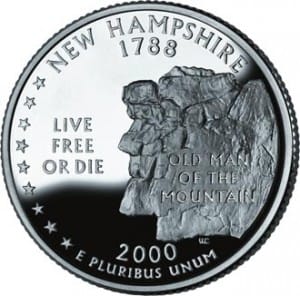Unaffiliated voters could make a splash in New Hampshire primary

With the Iowa caucuses now behind the Republican presidential field of candidates, most of them have now moved on to brave the political wilderness known as New Hampshire- a small, but significant state where unaffiliated voters can show up in droves to make their voices heard in the nation’s first official primary of election season. It’s distinct from the recently held Iowa caucuses, which follows a complex voting and delegate selection process.

What makes New Hampshire noteworthy to watch is that unaffiliated (or undeclared) voters-those not registered as either Republicans or Democrats- have a strong presence in the state. In New Hampshire alone, they’re up in the 40% range of total registered voters. Candidates who make the campaign trek must actually make a solid effort to win over their support, knowing full well these voters can’t be taken for granted.
As the number of unaffiliated voters rises, this could probably be one of the more important New Hampshire primaries to date for those not dutifully attached to either the Republican or Democratic parties. This group's presence in New Hampshire could be enough of a factor to make presidential candidates go outside their own partisan-minded comfort zones in order to propose real solutions for the country’s problems.
What adds to the power of New Hampshire’s undeclared voters during this particular time is that the state’s GOP presidential primary is open to them. They’re allowed to vote in either Republican or Democratic primaries by switching their political affiliation at the polls. Those voters already registered as Republicans or Democrats must vote in their party’s contest and cannot cast votes in a party primary opposite their own.
A win here, although it doesn’t necessarily guarantee ultimate victory in the end, could speak volumes. In today’s increasingly independent-oriented political world, it’s definitely a test to see just how far a candidate is willing to stray from the typical partisanship model in order to appeal to the broader electorate.
Probably most important for independents is that, as populous and potentially influential that unaffiliated voters may be in New Hampshire, there nevertheless remain some residents who aren’t enthused about the political process altogether this time around. This more cynical sentiment is based on an expectation of continued gridlock in the midst of a struggling economy. However, a candidate who is able to energize this critical group of disgruntled voters might be one worth watching.


